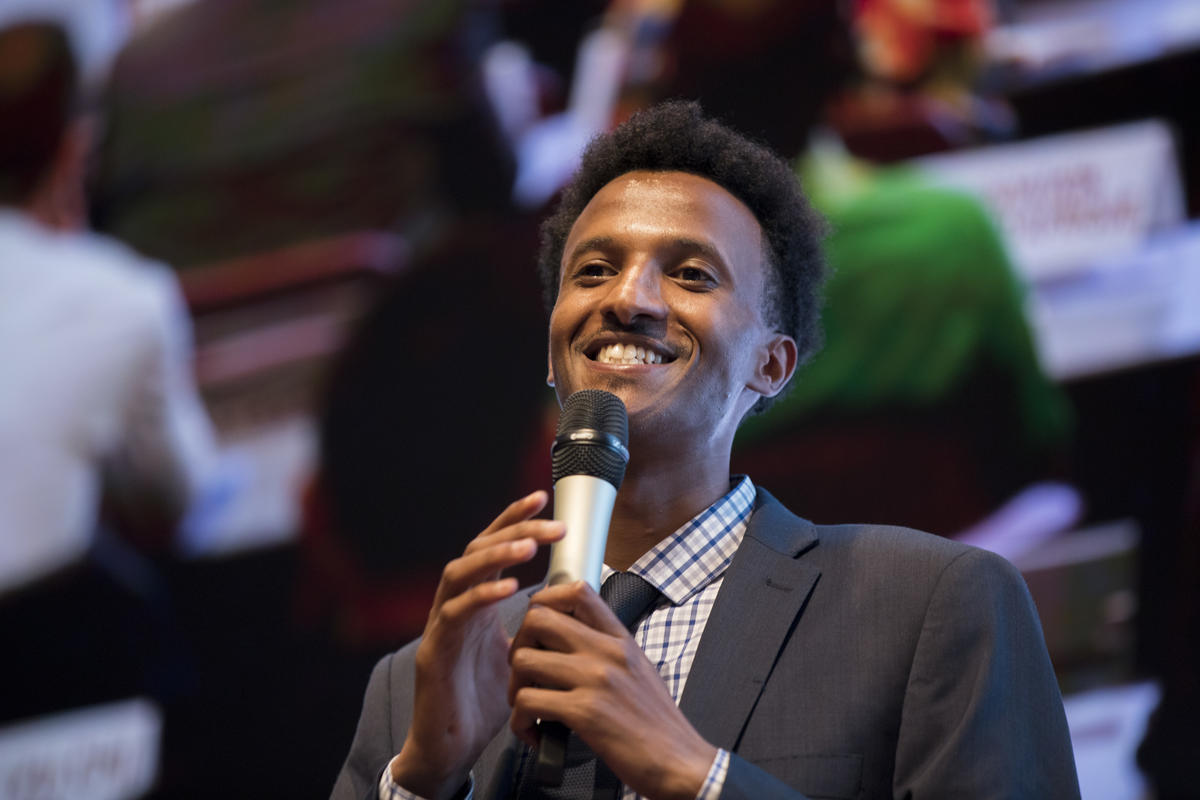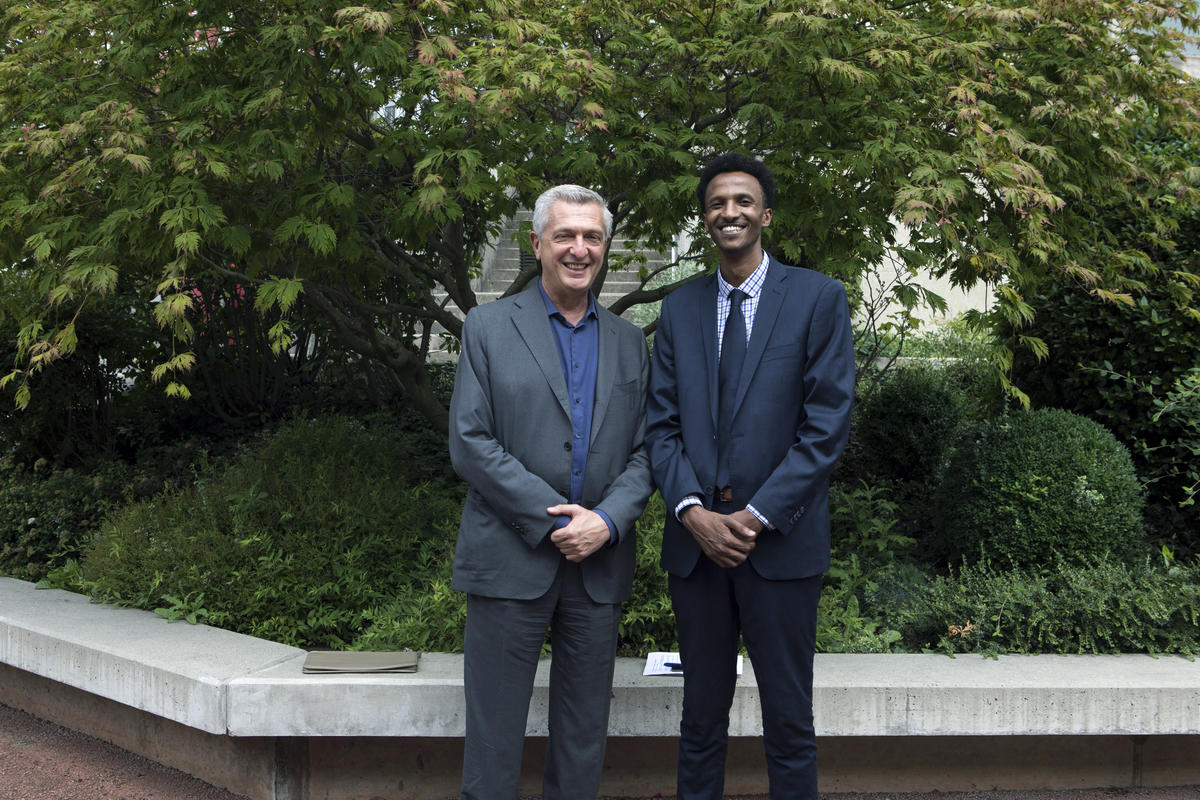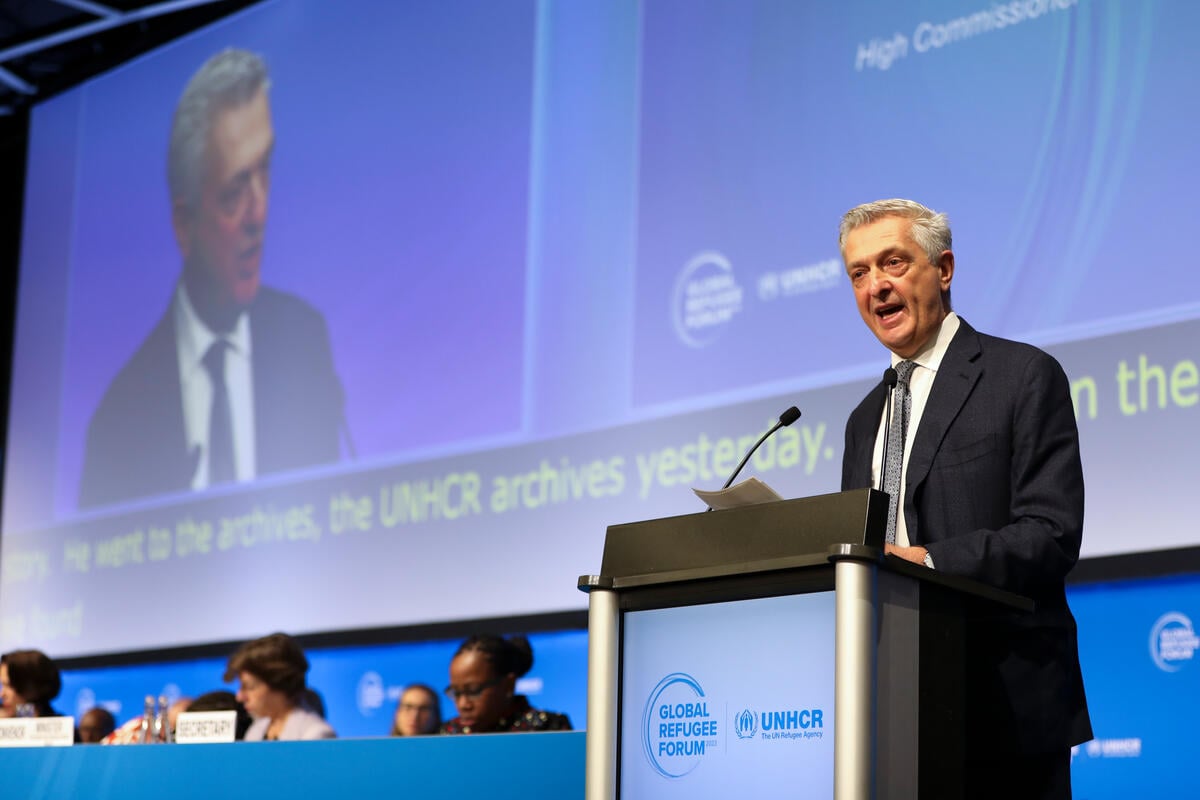NGO partners more crucial than ever, says UN refugee chief
NGO partners more crucial than ever, says UN refugee chief

GENEVA, Switzerland – UN High Commissioner for Refugees Filippo Grandi has called on non-governmental organizations from around the world to work together to counter “toxic” discourses that pose a danger not only to refugees but also “the very foundations of our global society”.
“We need to provide a moral and strategic response to these trends,” Grandi told 500 delegates from some 300 civil society organizations working in more than 80 countries. He was speaking on Wednesday at the opening session of the UN Refugee Agency’s Annual Consultations with Non-Governmental Organizations, a three-day gathering in Geneva, Switzerland.
Grandi stressed the crucial role such organizations play, noting that their advocacy was more crucial than ever in the current political climate.
He also pointed to the moderator of the opening session – former refugee Guled Mire, who was forced to flee his native Somalia as a child and has since become a prominent advocate for refugees in his adopted homeland New Zealand – as an example of the kind of positive contributions refugees can make.
"Refugees as a whole, we enrich societies."
“You are the proof that solutions are possible, and you are the proof that refugees are contributors to the societies that host them,” said Grandi.
Mire responded by saying that he is constantly “trying to remind people that my experience isn’t unique.”
“It’s the refugee experience, the global experience,” said 28-year-old Mire, who co-founded an organization called Third Culture Minds, focusing on mental health. “Refugees as a whole, we enrich societies.”
Mire lamented the fact that getting this message across has become increasingly difficult in the face of rising anti-refugee rhetoric in many parts of the world.
UNHCR has over 1,000 partner organizations – two-thirds of which are local and national NGOs, as opposed to international ones. In cooperation with UNHCR, these partners implement programmes backed by USD$1.4 billion of donor funding annually, Grandi said, adding that the agency recognized that “national NGOs need more support.”
The Annual Consultations are an important forum for debate and provide fresh opportunities to collaborate on advocacy and operational issues with participants from around the globe.
This year, the gathering’s main topics include the use of data in refugee responses; UNHCR’s ongoing process of regionalization; the need to continue to focus on integrity; and the inaugural Global Refugee Forum, which is slated to take place in Geneva on 17 and 18 December 2019. That event aims to take stock of the current global situation and strengthen the international response.
During a question and answer session, Grandi responded to audience queries about several ongoing challenges, such as the exodus from Venezuela and the situation in Libya, including Tuesday night’s attack on the Tajoura Detention Centre in the latter, which left scores dead and dozens injured.
- See also: UNHCR, IOM condemn attack on Tajoura, call for an immediate investigation of those responsible
In response to a question about the Central Mediterranean situation, he said, “It is very clear that rescue at sea is an absolute imperative, and to weaken rescue at sea, as Europe is doing, is absolutely unacceptable.”
Grandi linked the situation in the Central Mediterranean to a worrying global trend of increasingly politicized discussions surrounding refugees.
“Bringing politics into the humanitarian discourse in a manner that disparages, stigmatizes, marginalizes refugees…is a very slippery slope,” Grandi said.











